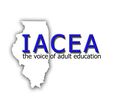|
Michael Matos, Technology Project Manager at Chicago Citywide Literacy Coalition, IACEA Region 1 Director, and COABE Region 3 Representative
Editor's note: This is Part 2 of a two-part article on innovative technology integration. Read Part 1 here. A new learning environment for educators How can we encourage discussions around “tech pain points” that arise when technology is introduced in education? In the Illinois Digital Learning Lab (IDLL), we focused on curating a collaborative, peer-to-peer learning environment for sharing strategies that encourage educators to take charge of their technology professional development. Core elements of the IDLL include:
Program design from this first cohort included: - 25 educators from 22 organizations throughout Illinois. - Five subject-matter experts (SMEs) supporting five cohorts that included a diverse set of participants (type of organization, role, curriculum, geographic location, student demographics). - Participants committed at least 15 hours to the project including monthly virtual check-ins and bi-monthly reporting. - The full community gathered for three peer-to-peer events (launch, mid-point, closing event) The IDLL included a variety of traditional and innovative PD methods, including: - Lectures by experts to launch the project. - Peer-to-peer sharing on monthly Zoom meetings and mid-year gatherings. - Continuous learning through social media (IDLL Facebook group). In the first year, the IDLL successfully: - Developed technology integration leaders who could support future professional development at the local level. - Established the importance of assessing digital literacy skills and instruction. - Supported educators and learners in reaching curricular and individual goals. - Helped adult learners become more confident in using technology both within and beyond the classroom. Ultimately, our community of adult educators in Illinois learned several valuable lessons that we are looking to build upon as we expand the IDLL into its second year. To increase the likelihood of technology adoption success, we found it’s important to: - Adopt an always-learning culture so students, teachers, and administrators continuously build new skills together. - Offer a variety of training methods and supports, including lecturing, modeling, and exploratory (hands-on) learning. - Lead with learning, not with the technology. The stories we tell should focus on how our learners are better served through technology integration. - Provide many avenues for key stakeholders to be involved, co-create, and share feedback. Giving everyone a voice ensures the conversation will be equitable and aligned with the needs of students and staff. - Communicate regularly and keep the vision at the forefront. There are bound to be unique challenges that the team encounters; it’s much easier to stay motivated and focused if the vision for learning remains central to each conversation. Ultimately, our goal is to help students and teachers develop the 21st century skills needed for professional and personal success. Technology can play a pivotal role in connecting us all as co-learners as we learn to navigate the increasingly complex future of work. Technology adoption can be challenging, but as long as we root ourselves in a collaborative environment and seek to reflect in an always-learning culture, we can increase the likelihood of technology success precisely because we are listening to each other and evolving based on the needs and goals we continuously refine as a learning community.
0 Comments
Michael Matos, Technology Project Manager at Chicago Citywide Literacy Coalition, IACEA Region 1 Director, and COABE Region 3 Representative
Editor's note: This is Part 1 of a two-part article on innovative technology integration. Look for Part 2 on Friday, September 25. In my 25 years as an educator and educational administrator, I have always looked at teaching and learning as dynamic and interactive. Simply put, I place an emphasis on innovating education and educating to innovate. Most recently, I’ve had the opportunity to lead the Illinois Digital Learning Lab (IDLL), a cohort-based professional development model supported by the Grand Victoria Foundation that helps adult educators build digital literacy skills while creating technology-rich learning environments for adult learners. As an extension, the IDLL helps educators differentiate instruction while supporting the development of 21st century digital problem-solving skills. Because educational technology can be customizable and motivating to students, the effective use of edtech can provide some extraordinary and empowering opportunities for students and instructors. Introducing new tools, however, can be a challenging process for organizations. The barriers to using new technology have become increasingly visible in the rapid response to COVID-19 as teams quickly move to online instruction. In the 2014 research report, Adopting New Technologies for Student Success, the Community College Research Center in the Teachers College at Columbia University identified four key areas to consider when attempting to adopt new technology: - Technological readiness focuses on current IT systems and technology usage. - Organizational readiness focuses on how decisions are made and communicated. - Project readiness focuses on the training and support available to staff and students. - Motivational readiness focuses on if key stakeholders are aligned in the vision for technology usage and the need for change. As the report notes, the purpose of technology usage in education is not to “increase administrative efficiency or information technology (IT) compatibility, though this may occur. Rather it is to help colleagues in restructuring the student experience to encourage improved learning, persistence, and completion” (p. 1). In other words, technology isn’t used for the sake of technology, but rather to support a more accessible, equitable, and meaningful learning environment. When adopting new technology, like adding online learning programming, organizations can therefore increase the likelihood of success by considering and properly planning for each of the four areas outlined in the report. In Part 2, learn more about the Illinois Digital Learning Lab and how the Lab experience addressed these "tech pain points" in a practical, practitioner-to-practitioner way. Look for Part 2 on September 25! |
EditorsWant to submit an article for the IACEA Blog? Send your 300-500 word article to: Archives
May 2021
Category
All
|

 RSS Feed
RSS Feed